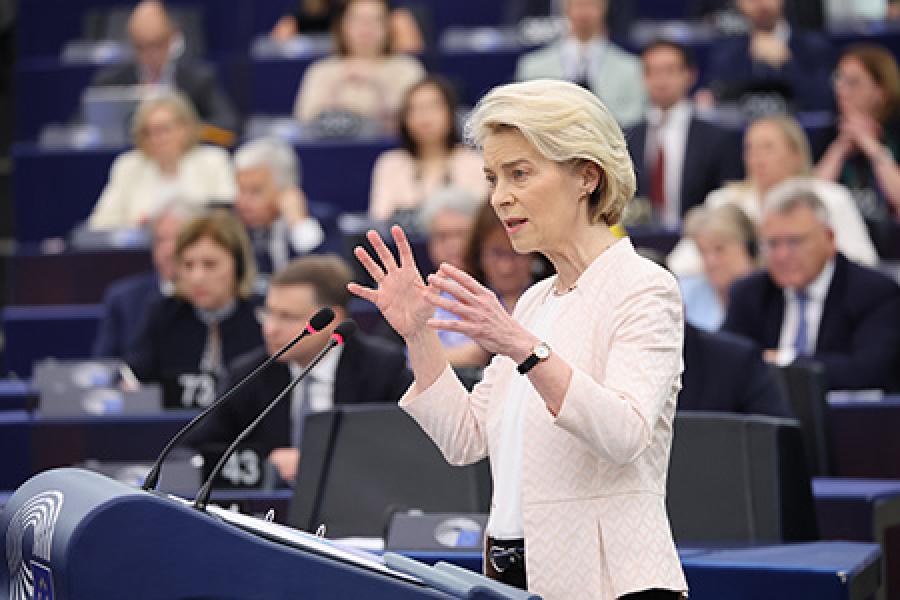The Commission’s newly elected President, Ursula von der Leyen, has pledged that her second Commission will consist of an equal number of women and men but until now nothing indicates that the member states are following her instructions to propose candidates of each gender.
In her speech on 18 July in the European Parliament, she announced that she intends to appoint a number of commissioners to tackle new policy areas but did not mention the issue of gender equality. This contrasted with her speech in 2019, when she promised to ensure full gender equality in the College of Commissioners.
“If Member States do not propose enough female Commissioners, I will not hesitate to ask for new names,” she said then. “Since 1958 there have been 183 Commissioners. Only 35 were women. That is less than 20%. We represent half of our population. We want our fair share.”
She came close to achieving the goal in 2019, with a college consisting of 12 women (44 %) and 15 men (including herself and Josep Borrell, the High Representative for foreign affairs and security policy).
She appointed the first ever Commissioner for Equality, Helena Dalli from Malta. Some progress was made by adopting a Gender Equality Strategy in 2021 and proposing the EU Pay Transparency Directive which was passed as law in 2023. Furthermore, women hold 48.5 % of all management positions within the Commission in 2024.
But as the Commission admitted on the International Women's Day on 7 March 2024, the percentage of women in politics is still far from being representative of EU’s diverse societies. The overall proportion of female members in single or lower houses of parliament currently stands on average at 33 % in EU Member States and 26.5% globally.
“We must continue to do more to inspire and promote the inclusion of women in politics,” the statement said. The Commission President has sent a letter to all Member States, instructing them to propose one female and one male candidate for Commissioner. The only exception from the rule is if a country wants to keep its incumbent Commissioner.
Greece, for example, has publicly announced that it already has informed von der Leyen that it intends to nominate Apostolos Tzitzikosta for the position of Commissioner in the new European Commission, replacing Margaritis Schinas. The choice of Tzitzikosta is political. He has experience of political roles as governor in a region in central Macedonia and as President of the European Committee of the Regions.
Another member state, Sweden, has a tradition of nominating female candidates. The conservative Swedish Prime Minister, Ulf Kristersson, announced recently that Sweden is going to nominate Jessica Roswall, the current EU affairs minister, to new Commissioner, replacing Ylva Johansson, a Social Democrat politician who had been nominated by the previous government.
Deadline for the nominations is end of August. Until now more than half of the member states have nominated a candidate, all of them reportedly a man. Asked last week if the Commission was worried about achieving full gender equality, a Commission spokesperson replied that the process is still on-going and declined to comment on individual nominations. The spokesperson did not disclose the gender distribution among the nominations already received.
M. Apelblat
The Brussels Times

